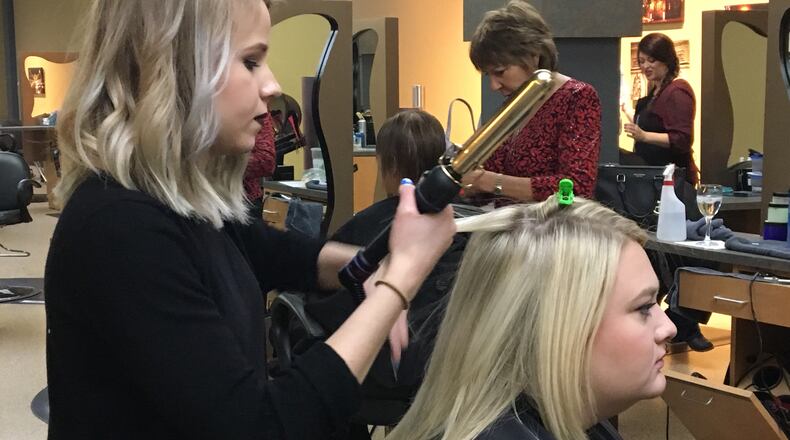If the licensee is in good standing in another state and has worked for a period of time, the license would be good in Ohio.
State Rep. Jena Powell, R-Arcanum, called the plan a “pro-growth, pro-jobs” policy that will help employers facing difficulty finding trained workers.
RELATED: Ohio looks to become more military friendly with statewide proposal
Roughly one in six Ohio workers holds a professional license and Ohio licenses 651 different occupations.
The legislation is backed by Americans for Prosperity-Ohio, the Buckeye Institute and NFIB Ohio.
Lawmakers recently approved Senate Bill 7, which recognizes occupational licenses granted by other states to spouses of active duty military members.
Military spouses look for a new job every one to three years and around 35 percent of them work in an occupation that requires some form of re-credentialing every time they move across state lines, according to White House data.
Nearly all 50 states have begun streamlining the licensing process for military families, according to the White House.
Powell is also sponsoring a separate bill that would reduce mandated training hours for hair stylists and barbers.
House Bill 399 would reduce mandated training hours for state licenses:
— 1,000 for cosmetologists, down from the current 1,500 hours;
— 800 for hair designers, down from 1,200;
— 1,000 for barbers, down from 1,800.
RELATED: Hair salons and schools tangle over reforms
The legislation would also allow for distance learning and working outside a salon for more flexibility for cosmetology students in training.
“As a state, it is time we move forward from the past policies of over-regulation, and move forward to make Ohio a more attractive place for individuals to live, work, play and raise families in our communities,” she said.
In 2015, lawmakers agreed to change some licensing requirements for hair salon managers.
Across Ohio, there are 191 barber and cosmetology training schools, 9,600 licensed barbers and 65,500 licensed cosmetologists, according to state reports.
About the Author

